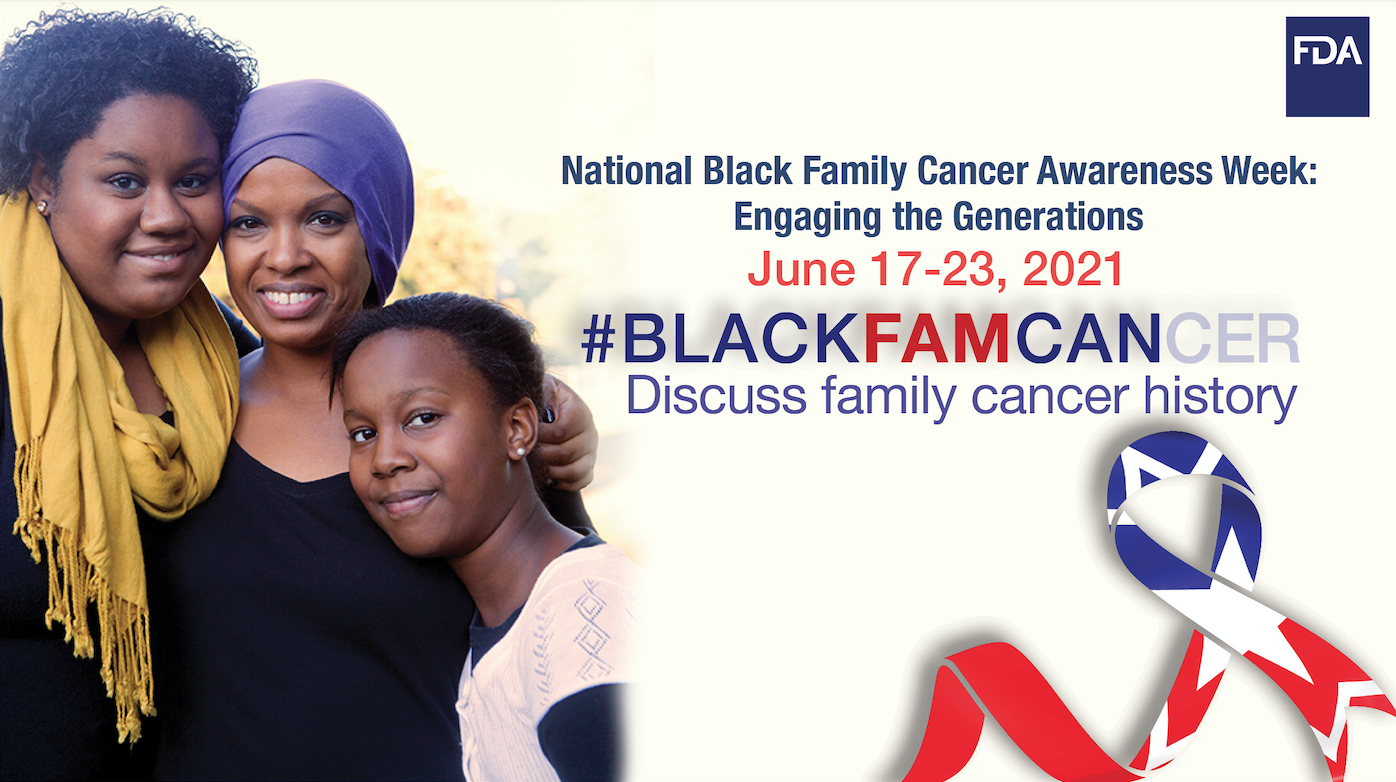
Statistics show that certain cancers – lung, breast, prostate, colorectal – affect Blacks more than other ethnicities. Discussing family health histories can improve outcomes when people who learn they are at high-risk for cancer take control of their health through genetic testing and other resources offered by the University of Illinois Cancer Center.
The Cancer Center and its Community Engagement and Health Equity team (CEHE) are participating in the first-ever National Black Family Cancer Awareness Week June 17-23 sponsored by the U.S. Food and Drug Administration, Oncology Center for Excellence. The initiative, titled “Engaging the Generations,” is designed to increase cancer awareness in one of the most vulnerable segments of the U.S. population.
Encouraging families to openly discuss their cancer history gives them the knowledge they need to take preventative action.
“Patient outcomes are improved by easing patient anxiety, reducing cancer risk, and enabling the early identification of cancer before it becomes a more serious problem,” said Dr. Deborah Manst, an oncogeneralist at the Cancer Center. “UI Health patients, seen through Mile Square Health Center, have been very interested in learning about their potential cancer risks, and those undergoing risk assessment and genetic testing are grateful that such services exist.”
The Cancer Center treats patients across Cook County, including those living in Chicago and the suburbs. More than 40% of Illinois’ population lives in Cook County and is racially and ethnically diverse – 23% are Black. Partnering with local and national organizations, as well as 13 Mile Square Health Centers (Federally Qualified Health Centers), the Cancer Center provides prevention and early detection outreach offering HPV vaccinations, smoking cessation programs, and breast, cervical, colorectal, lung, and oral/head and neck cancer screening.
Genetic testing is available through the Cancer Center’s Cancer Prevention and Survivorship Program to evaluate a patient’s potential cancer risk and assist individuals in creating a personalized management strategy. Should a genetic mutation be found, options are discussed with the patient concerning enhanced cancer screenings, risk-reducing medications, or surgeries to help decrease their risk.
Clinical trials are crucial not only for finding ways to better treat cancer, but also to find improved ways of detecting it early and possibly preventing it before it starts. More than 125 clinical trials are currently being conducted by Cancer Center members, and patients find them beneficial in several ways: helping other cancer patients by being part of advancing research; getting early access to what could be a promising therapy; feeling more in control of their health; and being monitored more closely by the patient’s health care professional.
While Blacks comprise 13.4% of the U.S. population, only 5% participate in clinical trials.
About one in three Black men and women will be diagnosed with cancer in their lifetime, and one in five will die from the disease, according to the American Cancer Society. Prostate cancer is the most commonly diagnosed cancer in Black men, and breast cancer in Black women. Lung and colorectal cancer are the second and third, respectively, most diagnosed cancer in both Black men and women.
Lung cancer was expected to account for the most cancer deaths in Black men (25%) and women (20%) in 2019, followed by breast cancer (18%) in women, and prostate cancer (15%) in men. For both men and women, colorectal cancer was expected to be the third leading cause of cancer deaths. Overall cancer deaths were lower in Blacks than whites in the 1950s. Death rates increased sharply in Blacks from 1950-1990 and have remained higher for Blacks since the 1960s.
To learn more about genetic testing at UI Health, visit https://bit.ly/3grtm96
To learn more about National Black Family Cancer Awareness Week, visit https://bit.ly/3vsgALM
